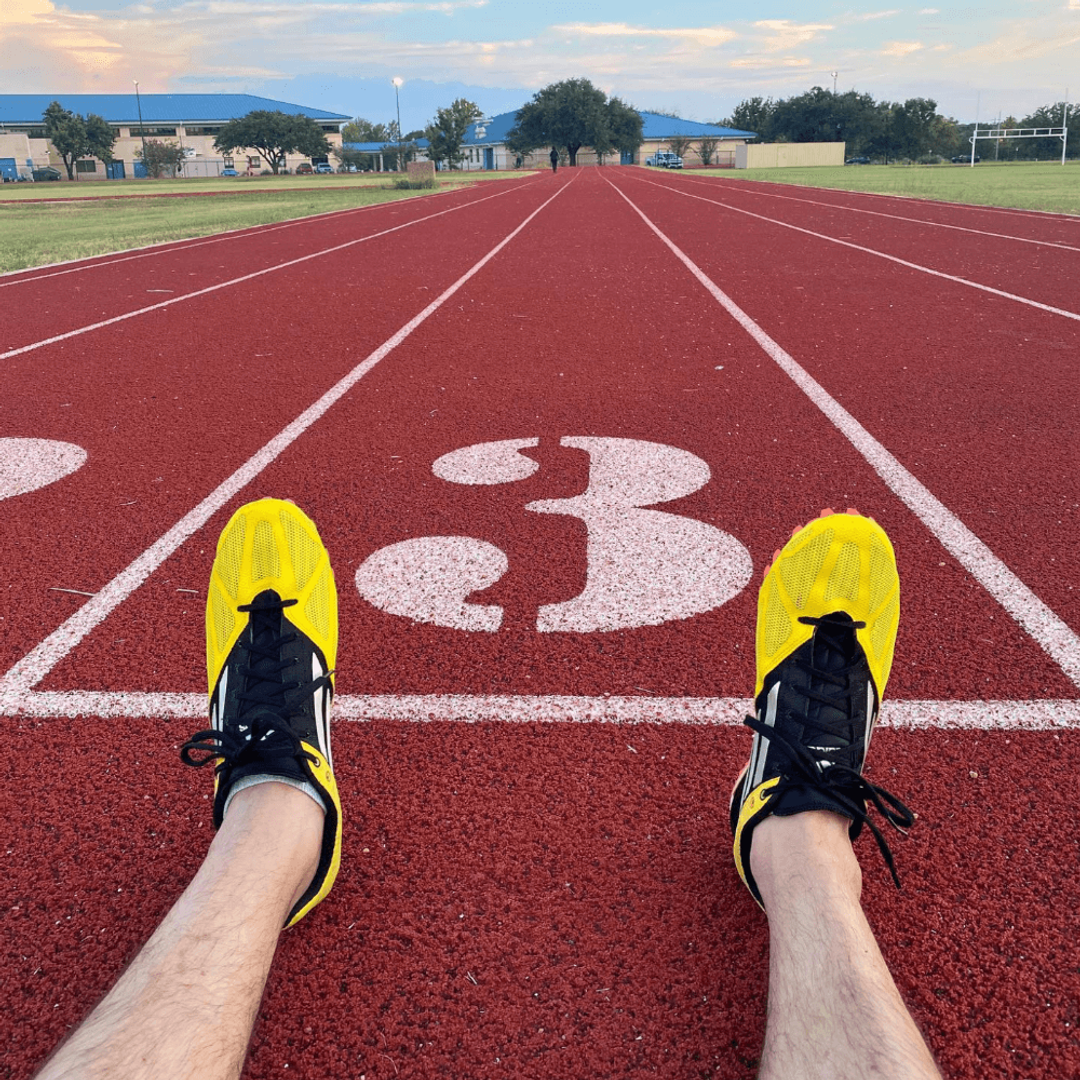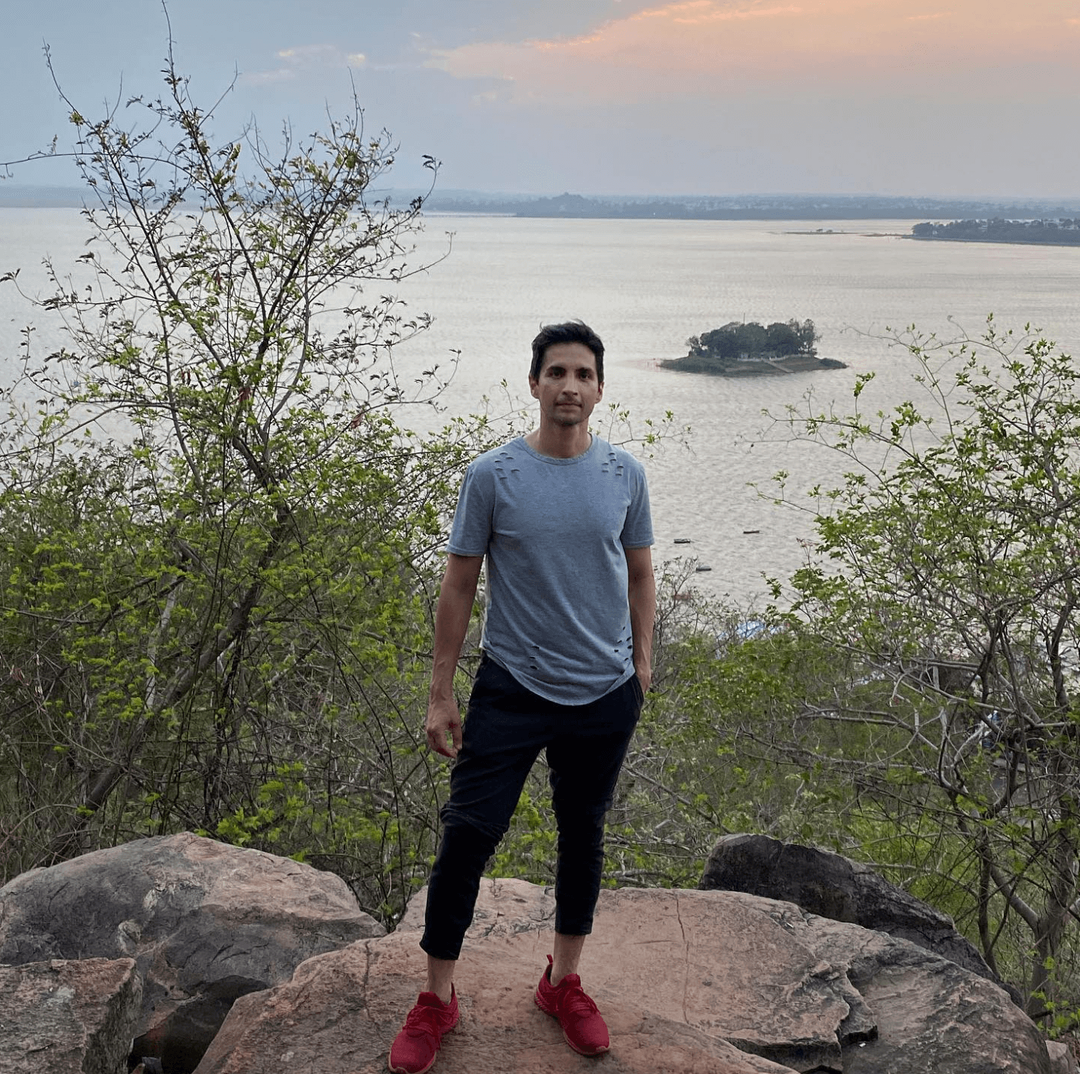How a Son's Love for His Parents Turned Into Biohacking
Are you ready to get emotional? Let us introduce you to Faraz Khan, a longevity expert with a story that will warm your heart and tips and trick you can use to start your health journey today.
Are you ready to get emotional? Let us introduce you to Faraz Khan, a longevity expert with a story that will warm your heart and tips and trick you can use to start your health journey today.
Faraz, let’s go down memory lane, can you share what encouraged you to get started on the journey of biohacking?
I was working in a busy corporate job and I would visit my parents once a year or so. Every time I went to see my parents, my mother would give me the guilt trip and she would tell me that I should spend more time with them, but what really got to me was seeing them visibly ageing before my eyes.
Every time I saw them, they would complain of aches and pains. They had less energy and so during this guilt trip, I was thinking to myself - how could I prolong their youthfulness? I wanted to help them live longer so that we can experience things together, travel the world, and do all these things that we always wanted to do as a family.
That lead me to researching longevity and anti-ageing, which resulted in me going down a rabbit hole of all the goodness that's coming, like all that science and technology that’s helping us rejuvenate ourselves and reverse ageing in so many ways. So I got into biohacking through anti-ageing, and now I'm combining both of those to optimize my life and reverse my age.
That's so sweet. You never hear about people getting into biohacking because of someone else, did your parents get on board with all of the changes you suggested or not?
No, they're old school. They are Indian parents and it takes a lot for them to make any major life changes. They view it with more than a healthy dose of skepticism. But once they saw my excitement for this new field they slowly stopped brushing me off.
Now every time I see them, I inspire them more and more. So now I've got them on a supplement stack. They’re taking supplements to reduce inflammation and help with their energy status.
They're also watching their diet and nutrition. I’ve helped them cut down their sugar intake since we all know how bad it is. Nowadays, they're eating healthier food and they are more conscious about their health. And my mother asks me all the time, should I do this, what do you think about this? It’s so exciting to see that they're actually taking charge of their health. All of these things help their youthfulness.
That's so cool. I love hearing how your parents are getting on board with the changes.
Thank you. It’s a slow transition, but they're getting on board.
Can you tell us how does GlycanAge fit into all of this?
I've been interested in these markers of ageing for the past few years and I met a lot of people that are in the health and wellness space, especially in longevity. That lead me to take a few of those DNA tests and naturally, I found GlycanAge.
I've been interested in this because I felt much younger than my age for the longest time. I’m athletic and I knew that I was not ageing in the same grade as others, but I didn't have any data to prove it. And so last year, I got my first DNA methylation test done, and I was 8 years younger than my chronological age, which gave me confidence.
And then I wondered what other tests are out there? And I heard of GlycanAge from a friend of mine. It intrigued me and I said, Okay, how are they doing things differently? In my research, I realized that your measurement is relying on the immune system. That piqued my interest and I wanted to have somebody on the podcast to talk about the technology, how it works, and how effective it is compared to the DNA methylation test. The rest as they say is history.
Were your results unexpected?
Yes, my biological age is 20, which is 21 years younger than my chronological age, which surprised me quite a bit. So yeah, I was very, very happy because my DNA methylation age was only 8 years younger and your test results really blew me out of the water.
Wow, that’s amazing. So you had a pretty positive experience with GlycanAge?
As I said, I have such great results, and I remember when I was talking to your employees, one of the main things they mentioned is the science behind it. We talked at length about your research on the positive effects of weight loss, and luckily for me, I was always slim. I've been an athlete my whole life. I've played competitive sports in college and before, so I'm lucky that I check that box.
But you know, what is interesting is when I took the test, I was coming off a one-week meditation seminar that I'd gone to. And so I took the test after two weeks of meditating every night for an hour, hour and a half. I believe that really helped improve my results.
I also loved reading the material on your site and filling in the questionnaire. I looked at the mature age and the youth age index and made sure that I had all the information upfront.
What was your diet like before and have you made any changes to it recently?
I've learned through research and talking to so many people that there is no one type of diet for everybody. And so for me, what works is eating a lot of whole foods and trying to make sure it’s organic. If I eat meat, it's got to be grass-fed or pasture-raised. I’m not vegetarian or strictly carnivore, I mix it all together. I eat probably 10 to 20% meat, 80% vegetarian, and a healthy dose of fish two to three times a week.
And of course, I eat fruits, but I always make sure I eat the fruit whole. I don't put it into a blender anymore, because when you put it into a blender, it turns into fructose way quicker and it goes into your liver as s sugar, making it more harmful. That’s why I try to eat the food as it's found in nature. And on top of that, I also do fasting, which I love doing a couple of times a year.
Wait how does that work. How many days do you fast?
For five days.
OK, I wasn’t expecting that. That's pretty shocking. And do you come out of it feeling energized? What's your process?
So the first day is not good but the second day you feel way worse. On the third day, you feel like your stomach is eating itself and you're pretty miserable, especially in the evening. But surprisingly, on day four, you get this rush of energy and you feel like you could go on a hike or maybe a jog.
It’s definitely not advisable to do that the first time you fast. But actually, days four and five are much easier than the first three days because your body is now adjusted to it. You have ample energy in your body and the fat you store, meaning you start burning fat, and then your body has all the energy that it needs.
I realized that when I did the ketogenic diet a couple of times. Once your body becomes adapted to burning fat, then it doesn't feel those hunger pains anymore.

Have you made any changes in your fitness routine?
Typically, I work out three to four times a week. I do sprints, I do a bit of cardio, and a lot of HIIT, high-intensity training. But leading up to the GlycanAge test for the three or four months prior, I actually hadn't been working out that much because I'm working on some other things.
I've been busy building a business, so I'm not focused on working out as much. But I do take a couple of walks every single day for 20 minutes each, which aligns with some of these findings we have from the zones where people live a long life. They're not going to the gym. They're working, they're building fences, they're catering to their cattle or their sheep or whatever there is. And it's fine if you want to, but you can also just go for a walk. I will get back into working out in the next couple of months.
You talk about being busy and having to adjust your lifestyle. What are some tips that you can share about living healthy while having a busy lifestyle?
I work a lot. I definitely work most of the day. Because of that, there's never enough time to do everything you want to get done. The one big takeaway I have is that you've got to schedule time into your calendar to do the things that are important.
Otherwise, the work will consume your entire life. One of the things that I've made very, very important in my lifestyle is my meditation time. I meditate at night before I go to sleep, and whether it's an hour or 90 minutes, I just make time for it. It's non-negotiable for me.
There are some instances where you go out or you're meeting friends and you stay out late, but I prioritize my meditation because that's when I come back to myself. It relaxes me and I can get better sleep right after it. But yeah, you have to schedule things in your calendar, otherwise, your day will just be focused on your business.

Speaking of meditation, was there a spiritual aspect to your journey?
I’m approaching spirituality through a meditative practice, through specific meditations that bring you into feeling more whole about who you are and less separation from everyone and everything around you. And so you feel more empowered, you feel more whole, you feel that there's less of the things you have to do in the physical world to get where you want to be.
It's a part of my spiritual journey and I look forward to that every day. But since I've started it, I just feel less pressure to get things done. At a particular time, I feel less separation from people. I feel just happier in general and in life.
Each of these meditations has a goal. For example, you want to cure your body of any ailments that you might have. So these meditations take you on that journey and help you focus your attention and your energy on either healing or becoming more whole.
But there are different meditations for bringing joy into your life. I find that when I do unguided or just quiet meditations, which essentially is the highest form of meditation where you just sit by yourself, my mind wanders. So I find that the guided meditations help me stay more focused and I'm more present at the moment.
How do you track your progress?
I use a lot of tools and technology. I use a ring that measures my sleep, which I believe a lot of people know about at this point. I'll measure that every day to see how I'm doing. I also have a Fitbit that I use sometimes to kind of double-check on my sleep stats and my fitness.
I measure how many steps I'm taking every single day, and how my heart rate is doing from moment to moment, especially when I'm sleeping. So those are important metrics.
I have tools where I measure my heart rate during the day. I measure it during my workouts and walks. I also use red light therapy during the day and monitor my glucose intake.
For example, once a week or once every two weeks I would go to Starbucks and get this Frappuccino drink. And I noticed that when I had my continuous glucose monitor on that it would spike around 40 points, just from that one coffee drink. And so immediately I took that out and I'm never going to drink that stupid drink again.
So using some of these tools and technologies that give you data to change your lifestyle is a key passion of mine. Now, do I wear my ring every day religiously? No, but I wear it enough, so I get a sense of how I'm feeling.
I'm not doing it every single day. I'll do it for a few days, then I'll take a break and I'll do it again. But as long as you're heading in the right direction, you’re good. When people are super tight about their diet or nutrition and they have to have the perfect food it can sometimes cause long-term stress. So if you don't have access to the best organic food, just eat the food you can and bless the food so that it’s good for you.
I think reducing stress, is very important. And just being a little easier with life, it's not that complicated, you know?
That's amazing. So do you have any advice for somebody who is just starting out their biohacking journey? You obviously have a lot of experience and knowledge, but are there any mistakes you made in the beginning that you look back on?
Yeah, for sure. For somebody that's starting out with health, biohacking, or longevity, it can seem like there's so much to do because you look at people that are advanced and have been doing it for 5 or 10 years and you go - There's no way I can do all that right.
It can be exhausting. If you read their daily routine, it sounds impossible.
My tips are:
- Prioritize your sleep
- Get some light in the morning and during the day
- Make sure you get enough vitamin D
- Eat whole foods
- Avoid processed foods
- Start some sort of meditative practice
- Be joyful
- Take rests
- Be kind to yourself
It's not very complicated. Once you get the basics down the last tip I would add is to have a good network of friends, that you want to be around and that are not negative and have a purpose in life.
I love it. Do you have any last tips for our readers?
Once I started getting into the health journey, I started cutting back on the wrong types of foods or the other things that we do when we're outside socializing. And that's been a big change for me because now I am super health-conscious.
And even when I go out it’s in the biohacking and health circles, and we consume mineral water and low-calorie foods or low sugar foods. I was at a Super Bowl party where we drank mineral water and we had chicken wings and keto bread. It's a whole different lifestyle. Once you get in and you draw that crowd in, that whole world changes.

Start or continue your GlycanAge journey
Don’t be afraid to reach out to us and ask questions, provide commentary or suggest topics.
 GlycanAge is a biological age test paired with expert advice to help guide your wellness.
GlycanAge is a biological age test paired with expert advice to help guide your wellness.